Keynote Speakers
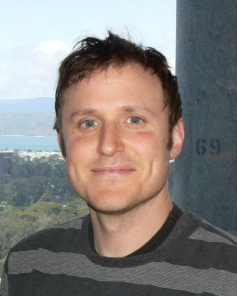
Richard Daneman
University of California, San Diego
Richard Daneman received his Bachelor of Science McGill University, in Montreal Canada majoring in biochemistry. He then received his Ph.D in developmental biology from Stanford University where he studied the molecular mechanisms that regulate blood-brain barrier formation in the laboratory of Dr. Ben Barres. Dr. Daneman then started his own lab as a Sandler Fellow at UCSF, before moving to a position as Assistant Professor in the departments of Pharmacology and Neuroscience at the University
of California, San Diego. Dr. Daneman focuses his studies on understanding the molecular mechanisms that regulate blood-brain barrier (BBB) function during health and disease. In his lab uses a combination of cellular, molecular and genetic approaches to understand the mechanisms of BBB formation and function, addressing important questions such as: What are the mechanisms that regulate the formation and function of the BBB? How does the BBB interact with the neuronal circuitry to regulate brain function and behavior? What are the molecular mechanisms that lead to BBB disruption during neurological disease? The overall goal of our work is to elucidate these mechanisms, such that we will be able to develop therapeutics to modulate the barrier to treat neurological diseases. He has received a number of honors including the Klingenstein-Simons Award in Neuroscience, the Rita Allen Foundation Milton E. Cassel Scholar award, the AAA young investigator award, the ASPET Neuropharmacology Early Career award and the NINDS Landis Award for Outstanding Mentorship.
Talk title: Regulation of the Blood-Brain Barrier in Health and Disease
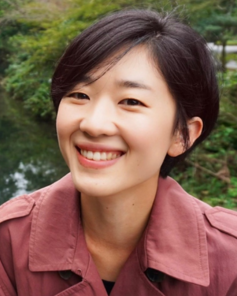
Tae-Eun Park
Ulsan National Institute, South Korea
Dr. Tae-Eun Park is an assistant professor of Department of Biomedical Engineering at Ulsan National Institute of Science and Technology (UNIST) in Korea. She received her undergraduate degree in animal biotechnology in 2011 and her PhD in 2015 from Seoul National University. During PhD, she focused on development of blood-brain barrier (BBB) model and brain drug delivery systems mimicking rabies virus. She continued her postdoctoral studies at Wyss Institute in Harvard Medical School (2015-2017) under supervision of Prof. Donald E. Ingber. Her research area of interest lies in the development of organ mimetic systems for novel drug discovery and drug delivery systems using microfluidic and stem cell approaches. In particular, her research efforts focus on how to mimic and how to overcome blood-brain barrier for brain drug delivery.
Talk title : Brain drug delivery innovation through blood-brain barrier-on-a-chip technology

Andrew Yang
Gladstone Institutes & UCSF, USA
Andrew is an Assistant Professor at the Gladstone Institutes and UCSF. His lab develops new molecular approaches to understand the meaning, mechanisms, and therapeutic potential of protein and immune signaling across the brain’s unique barriers.
Talk title : Tracing proteomes across the blood-brain barrier

Michael Mitchell
University of Pennyslvania, USA
Invited Speakers

David Attwell
University College London, UK
David Attwell did a BSc in Physics and a PhD on neuronal and cardiac electrophysiology in Oxford, before spending 2 years in Berkeley studying the retina. He then moved to University College London, where he has studied glial cells, glutamate transporters, stroke, myelin formation, how neuronal computation is powered and the control of cerebral, cardiac and renal blood flow. He was made a Fellow of the Royal Society in 2001, and was a Highly Cited Scientist (in the top 0.1% of scientists) from 2019-2022. He was President of the UK Physiological Society in 2023-24, and is now Director of the BHF/UK-DRI Centre for Vascular Dementia Research.
Talk Title: Reversing pericyte-mediated capillary constriction: a therapeutic target for restoring cerebral blood flow in dementia-causing conditions.
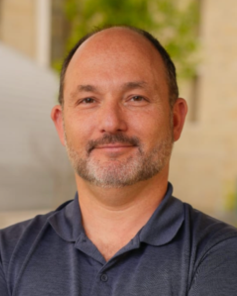
Ayal Ben-Zvi
Hebrew University, Israel
Ayal Ben-Zvi is an Associate Professor at the Faculty of Medicine, The Hebrew University of Jerusalem. Prof. Ben-Zvi did his Ph.D on neural development and axonal guidance at the Hebrew University of Jerusalem. During his post-doctoral studies, at Harvard Medical School under the mentorship of Prof. Chenghua Gu, he studied aspects of BBB developmental and uncovered mechanisms regulating transcytosis. Since 2014 his group is studying brain barriers in the context of development, physiology and pathophysiology, and pioneering the use of Super-Resolution microscopy as a robust approach for discovery of unique barrier structures.
Talk title : Applications of Single Molecule Localization Microscopy (SMLM) in BBB research – discovery of unique barrier structures

Matthew Campbell
Trinity College Dublin, Ireland
Matthew Campbell is Chair of Neurovascular Genetics and Head of Department at the Smurfit Institute of Genetics in Trinity College Dublin. He is originally from Dublin and graduated with a degree in Biochemistry from UCD in 2002 and went on to complete a PhD in 2006 at the same institution focused on understanding the role of the blood retina barrier in the degenerating retina. In the same year, he moved to Trinity College Dublin and conducted postdoctoral research with Prof Pete Humphries on the role of the blood brain/retina barriers in health and disease. In 2013, he was awarded Science Foundation Ireland’s (SFI) President of Ireland Young Researcher Award (PIYRA) which allowed him to establish his own research group in TCD. Since then, he has received numerous additional awards for his research which focuses on understanding the role of the so-called blood-brain barrier (BBB) and blood retina barrier (BRB) in healthy and diseased states. In 2020 he was awarded one of Europe’s most prestigious awards from the European Research Council (ERC). In the same year he was elected Science Foundation Ireland’s early career researcher of the year. He also leads the SFI funded EYE-D programme, a four year €3.2M initiative which is focused on identifying novel therapeutic targets for ocular diseases. He is also a PI in the SFI funded Centre Future-Neuro. He is the founder and Director of the Neurovascular Genetics Unit at TCD and has over 20 years of research expertise in the area of blood brain and blood retina barrier biology. He sits on the scientific advisory board of the Moorfields Hospital Charity the UK charity Sight Research UK and the Alternating Hemiplegia of Childhood Foundation (AHCF).
Talk Title: “Regulation of claudin-5 at the BBB in health and disease”
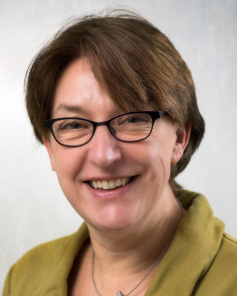
Elga de Vries
UMC Amsterdam, Netherlands
Elga de Vries was trained in the field of neuroscience/neuroimmunology as a biomedical scientist. She now runs her Neuro-immunology research group at the Department of Molecular Cell Biology and Immunology (MCBI) at the Amsterdam UMC. Throughout her scientific career, she is interested in studying the cross talk of the brain and the immune system with a specific focus on the barriers between them. Research of De Vries is primarily aimed at the identification of how various mediators control immune cell migration into the brain and alter brain barrier function in relevant models which will be an essential step in implementing prognostic diagnostic biomarkers as well as the identification and testing of novel treatment opportunities for neurodegenerative diseases in relevant models. Her work is/has been funded by various funding agencies (i.e. Dutch MS Research Foundation, Alzheimer NL, and various EU programs Marie Cure ITN, IMI, H2020, and ERC Advanced). She also serves as past president-elect of the International Brain Barrier Society and as chair of BBBNedwork and as an active member of the editorial board of the journal Fluids and Barriers of the CNS, all activities to promote blood-brain barrier research.
Talk Title: Neuro-immune events at the blood-brain barrier in neurodegeneration
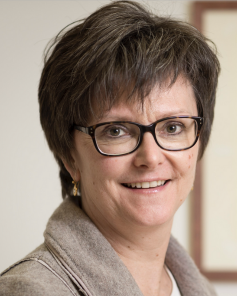
Britta Engelhardt
Bern University, Switzerland
Britta Engelhardt is Professor for Immunobiology and Director of the Theodor Kocher Institute at the University of Bern in Switzerland. Using advanced in vitro and in vivo live cell imaging approaches her work has significantly contributed to understanding the role of the brain barriers in maintaining central nervous system (CNS) immune privilege. Her over 300 publications are highly cited. Her recent honors include the Malpighi Award of the European Society for Microcirculation in 2023, the Keynote Lecture Award from the Journal of Comparative Pathology Education Trust ESVP/ECVP and the Camillo Golgi Lecture from the European Academy of Neurology in 2024 and the Swiss MS Society Research Price in 2025. She is the Vice-President/President Elect of the International Brain Barriers Society.
Talk Title : How the brain barriers maintain CNS immune privilege

Krzysztof Kucharz
Copenhagen University, Denmark
Dr. Krzysztof Kucharz is a neuroscientist at the University of Copenhagen, specializing in two-photon laser scanning fluorescence microscopy in vivo and blood-brain barrier (BBB), with over 18 years of academic experience. His work focuses on the molecular mechanisms of BBB function and macromolecular transport, particularly in neurological disorders like Alzheimer’s disease. Using advanced imaging techniques, Dr. Kucharz has identified vascular “hotspots” for drug transport and demonstrated how different vessel types mediate BBB permeability under physiological and pathological conditions.
Dr. Kucharz has developed experimental paradigms using two-photon microscopy to analyze BBB dynamics in real time. His research has advanced understanding of receptor-mediated transcytosis and the design of nanoparticle-based drug delivery systems. Published in leading journals such as Nature Communications and Brain, his studies have significantly contributed to neurovascular biology and translational neuroscience.
In addition to his research, Dr. Kucharz collaborates with academic and industry partners to develop imaging-based methods for studying drug delivery and BBB mechanisms. He also contributes to international neuroscience training programs, sharing expertise in fluorescence microscopy and neurovascular imaging.
Dr. Kucharz’s work integrates innovative imaging approaches with mechanistic insights into BBB function, informing strategies for effective drug delivery to the brain. His research continues to address critical challenges in understanding and treating central nervous system disorders.
Talk Title : Vessel Types Determine Extent of Blood-Brain Barrier Paracellular Leakage, Adsorptive Transcytosis Increase, Responses to Treatments, and Glial Activation in Huntington’s Disease

Sarah Lutz
University of Illinois, Chicago, IL USA
Dr. Lutz’s research is directed to an understanding of the role of the blood brain barrier (BBB) in neuroinflammatory and neurodegenerative diseases. She has a particular focus on vascular permeability and leukocyte infiltration of the brain. She uses genetic and pharmacologic strategies to modify BBB function for repair in mouse models. Signal transduction pathways of interest include Wnt/beta-catenin and Caveolin-1. Dr. Lutz’s work is supported by the US National Institutes of Health, Department of Defense, and the Chicago Biomedical Consortium.
Talk title: The Blood-brain barrier in Long COVID: a role for transcellular and paracellular permeability.
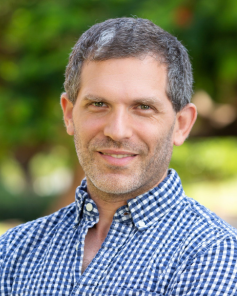
Ben Maoz
Tel Aviv University, Israel
Prof. Maoz is a faculty member at the Sagol School of Neuroscience and the Department of Biomedical Engineering at Tel Aviv University. Prof. Maoz did his Ph.D on nano-optics in the School of Chemistry at Tel Aviv. During his post-doctoral studies, at Harvard University, in Prof. Don Ingber and Kit Parker, he developed Organ-on-a-Chip platforms for studying human relevant physiology.
Prof. Maoz received number of prestigious fellowships, awards and honors, such as the Harvard-Wyss Technology Fellowship, Azrieli Fellowship for Academic Excellence and Leadership, ERC grant, recently he was chosen by “The Marker” as the most promising 40 under 40 and he gave a talk in the first metaverse TedX
Talk title : coming soon
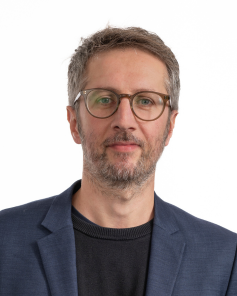
Axel Montagne
Ediburgh University, UK
Dr Axel Montagne joined the UK Dementia Research Institute at Edinburgh in 2020. He completed his PhD degree at the University of Caen Normandy (France), followed by postdoctoral training at the University of Southern California (USC) in Los Angeles. His career has focused on how cerebrovascular dysfunctions contribute to neurodegeneration and dementia in both animal models and humans. In his UK DRI program, he combines molecular approaches with rodent non-invasive imaging, particularly MRI and microscopy techniques, to study the causes and effects of blood-brain barrier (BBB) dysfunction, with a particular focus on the Endothelium-Pericyte-Immune tripartite interactions, in the context of neurodegenerative disease. Dr Montagne’s work is supported by the UK DRI, principally funded by the UK Medical Research Council (MRC), and additional funding partners (Alzheimer’s Research UK, Alzheimer’s Society UK, and British Heart Foundation). In addition, Dr Montagne was awarded the 2021 SCOR Young European Researcher Prize for his research into Alzheimer’s disease and a MRC Career Development Award in 2022.
Talk title : Cerebrovascular Dynamics in Dementia: Unravelling the Tripartite Crosstalk between the Endothelium, Pericytes, and Microglia

Morten Nielsen
Aarhus University, Denmark
M.Sc. in chemistry and biotechnology from Aarhus University in 1992, PhD in medical science from Aarhus University, 1996. Employed as professor at Department Biomedicine, Health, Aarhus University.
Talk title : Receptor trafficking at the blood brain barrier

Amita Sehgal
University of Pennsylvania, USA
Amita Sehgal is the John Herr Musser Professor of Neuroscience, Investigator of the Howard Hughes Medical Institute and Director of the Chronobiology and Sleep Institute (CSI) at the University of Pennsylvania. Prof. Sehgal received her Ph.D. from the Weill Graduate School, Cornell University, and conducted her postdoctoral studies at Rockefeller University. Sehgal has elucidated molecular mechanisms that drive circadian rhythms of behavior and physiology and those that underlie sleep regulation and function. Her work has been recognized through a number of awards and honors, which include the Outstanding Scientific Acievement award from the Sleep Research Society, the Javits award from NINDS, the Michael Brown and Stanley Cohen Research awards at Penn, the Honma prize (Japan) for biological rhythms and the Switzer Prize from UCLA. Sehgal is an elected member of the National Academy of Medicine, the American Academy of Arts and Sciences and the National Academy of Sciences USA.

Lino Ferreira
Univeristy of Coimbra, Portugal
Lino Ferreira (LF) BSc, Ph.D. (Portuguese, M, 53 years old) is a Coordinator Researcher (equiv. to Full Professor) at the Faculty of Medicine, University of Coimbra, Vice-Director of the PT Government Associate Laboratory CIBB, University of Coimbra (Portugal). He is the associate editor of Biomaterials Science Journal (RSC) and founder of two technology-based companies. He also founded and directs the Collaborative Laboratory Colab4Ageing that currently integrates 6 associates. His bioengineering lab develops biomaterials, drug delivery systems, and cell therapies for age-related diseases, particularly cardiovascular conditions. LF has held the ERA Chair holder in ageing at UC since 2016 and coordinated major EU-funded projects, including RESETAgeing (2021-2024) and REGENERAR. His team was the first to be housed in MIA-Portugal, a research infrastructure dedicated to ageing in southern Europe.
Over the past decade, LF’s lab has contributed significantly to tissue models for screening and aging research, anti-senescence therapies, and advanced nanoformulations. He has published over 170 scientific papers, holds 25+ international patents, and has an h-index of 63 with ~15,500 citations.
Talk Title: The Blood-Brain Barrier: Insights into Modeling, Aging, and Transport Opportunities

Stina Syvänen
Uppsala University, Uppsala, Sweden
Stina Syvänen earned her Ph.D. from Uppsala University in 2008, followed by a postdoctoral fellowship at Leiden University in the Netherlands. She was appointed Professor in 2022 and leads the Molecular Geriatrics research group at the Department of Public Health and Caring Sciences, Uppsala University. Her research focuses on translational PET imaging and drug delivery to the brain, with a particular emphasis on developing brain shuttle and bispecific antibody technologies to enhance the transport of therapeutic and diagnostic agents across the blood-brain barrier. By engineering innovative antibody formats, she aims to improve both targeted PET imaging and therapeutic strategies for neurodegenerative diseases, including Alzheimer’s disease. Her work bridges molecular medicine, bioengineering, and clinical translation to advance novel approaches for treating and diagnosing brain disorders.
Talk title: Crossing the BBB: Bispecific Antibodies for PET Imaging and Therapy
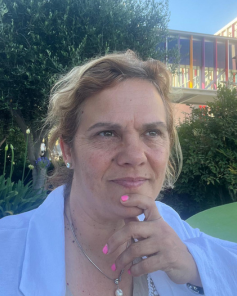
Meritxell Teixidó
Gate2Brain, Spain
Meritxell Teixidó holds a PhD in Organic Chemistry from the University of Barcelona (UB) and an eMBA in Entrepreneurship, Innovation and International Business from UOC. At a scientific level, her field is the synthesis of peptides and the discovery of peptides capable of crossing biological barriers and she was responsible for this research line at the IRB Barcelona during more than 15 years, where she co-directed 10 doctoral theses, published more than 50 articles and participated in 9 patents.
After dedicating more than 15 years to biomedical research at IRB Barcelona, trying to improve the arrival of drugs to the brain by crossing the blood-brain barrier that protects it. She decided to jump more barriers and be the CEO/CSO of Gate2Brain SL. in order to bring technology closer to patients, a challenge and an honor. Jumping barriers is perhaps the common thread that describes her, combining science and innovation with a new vision on leadership, for which she received the spanish Woman Startup Award 2022 – Inspiration.
Talk Title: Gate2Brain blood-brain barrier shuttle peptides: From discovery to applications and going beyond small molecules.